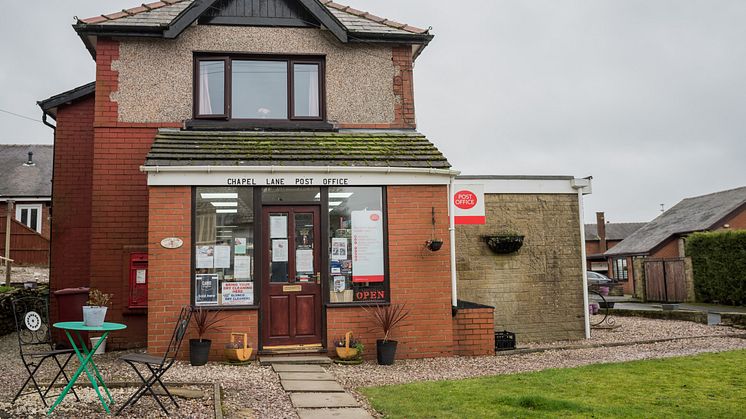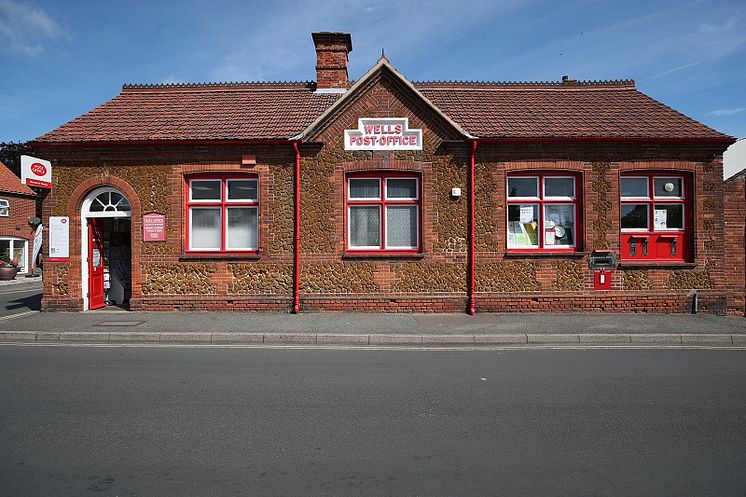
Press release -
Post Office’s annual economic impact greater than Heathrow Airport, independent report finds
- In 2021-22 Post Office generated £4.7bn in economic impact across the UK – more than the economic impact of Heathrow Airport
- For every £1 spent by Post Office, an additional £1.51 generated across the wider economy
- Nearly 3 in 10 SMEs use Post Office at least once a week, valuing Post Office at nearly £1bn due to the convenience of the Post Office network and having branches nearby
- Post Office supports nearly 50,000 full time jobs – equivalent to the number of full time employees in a city the size of Lincoln or Exeter
- Additional £3.1bn in local spending in nearby shops and businesses during a visit to a Post Office
- The total social value of Post Office to consumers is nearly £4bn per annum, with social value delivered by Post Office 16.5 times greater than funding it receives from Government
A new report reveals the Post Office has an economic impact of £4.7bn, more than the annual economic impact of Heathrow Airport.
The independent report by London Economics, a specialist economics and policy consultancy, found that for every £1 spent by Post Office, an additional £1.51 is generated across the wider economy.
On the high street alone, visits to post offices generate over £3 billion a year of spending in nearby shops and businesses and nearly £1 billion of spending in host retailers as a result of the additional customers that their post office attracts. London Economics found that money was spent in neighbouring shops and premises on over 2 in 5 visits to branches.
Post Office and its network of branches supports and sustains nearly 50,000 full-time equivalent (FTE) jobs throughout the United Kingdom. This is approximately the same number of full-time employees as there are in a city the size of Lincoln or Exeter.
Post Office’s extensive reach means it helps support over 4,000 FTE jobs in nine of the United Kingdom’s 12 regions, and at least 1,900 FTE jobs in every region.
The report, titled Part and Parcel: the economic and social value of Post Office, highlighted Post Office’s crucial role as part of the underlying economic infrastructure of the United Kingdom and as an enabler of small and medium-sized enterprises (SMEs). Post Office is worth almost £1bn overall to SMEs, with nearly three in 10 SMEs using a Post Office once a week to deposit cash and use mails services.
The report found that Post Office has an average economic impact of £5.8m per parliamentary constituency, which is equivalent to an economic contribution of £57 per person. Out of 650 constituencies, there were 102 constituencies (16%) associated with at least £7.5 million of UK-wide economic impact and 426 (66%) associated with an impact of at least £5 million.
Nick Read, CEO of Post Office, said:
“Post Office branches are essential to the high street ecosystem, driving footfall and generating wider nearby economic activity, as well as providing an underlying economic infrastructure that supports SMEs. The report shows that this economic contribution is felt in every corner of the country, and across each parliamentary constituency, supporting 50,000 jobs, and generating an aggregate economic impact of £4.7 billion every year.
“Post Office is essential for the shopkeepers, traders, and nascent businesses of the nation as a whole, who rely on our continued presence on high streets in towns and villages everywhere.”
James Cannings, Economic Consultant at London Economics and one of the report’s authors said:
“This report highlights the enormous value that Post Office generates in every corner of the United Kingdom, with a reach that is rarely seen by other businesses. Post Office is the backbone of the UK’s economy, supporting economic value through working as an important enabler for businesses. It also plays a key role in keeping the UK’s day to day commercial activities alive by creating a trusted anchor on high streets and by generating a livelihood for Postmasters."
The report also found that the social value to consumers alone delivered by the Post Office was 16.5 times greater than the funding received from government. The annual social value of Post Office as a whole to consumers is as much as £3.8 billion and, on average, consumers said they were willing to pay more than £130 for Post Office services per household each year.

The report additionally highlights the important role Post Office’s play in maintaining banking infrastructure across the UK. With the decline of high-street banks, Post Office is the mainstay of the United Kingdom’s banking infrastructure for vulnerable and less well-off individuals, with 15% of the population depending on their local Post Office branch for cash and banking services.
Nick Read added:
“Simply put, post offices, and the dedicated Postmasters and Postmistresses who run them, keep people connected. Connected to the financial system and their cash, to their friends and loved ones, to their customers at home or overseas, and connected to one another in what may, for some, be the only human contact in the day.It is very telling that half of customers believe Post Office fosters a sense of belonging in the community. Post Offices should not be overlooked nor taken for granted.”
James Cannings added:
"Our research shows how Post Office supports the most vulnerable in our society by maintaining vital services close to their homes, particularly during the current cost-of-living crisis. It is striking that vulnerable individuals are more likely to use Post Office services, such as cash and banking, and place a higher value on Post Office than others, despite generally having lower incomes. Post Office has already faithfully served the entire UK for nearly four centuries but has never been more important than it is today.”
Ends
To read the full report, click here: Part and parcel: the economic and social value of Post Office
Categories
About the Post Office
- With over 11,500 branches, Post Office has the biggest retail network in the UK, with more branches than all the banks and building societies combined.
- Post Office is helping anyone who wants cash to get it whichever way is most convenient. Partnership with over 30 banks, building societies and credit unions means that 99% of UK bank customers can access their accounts at their Post Office.
- Cash withdrawals, deposits and balance enquiries can be made securely and conveniently over the counter at any Post Office; and the biggest investment by any organisation or company in the last decade is being made to safeguard 1,400 free-to-use ATMs across the UK.
- Post Office is simplifying its proposition for Postmasters with a focus on itscash and banking; mails and parcels; foreign exchange; andbill paymentsservices.
- Researchhas found that visits to the Post Office help drive another 400 million visitors to other shops, restaurants and local businesses equating to an estimated £1.1 billion in additional revenue for High Street businesses.
- 99.7% of the population live within three miles of a Post Office; and 4,000 branches are open seven days a week.





